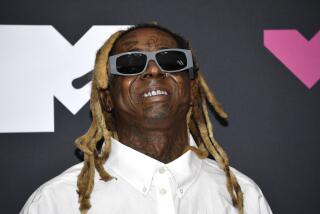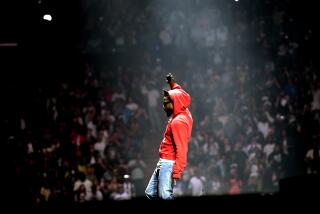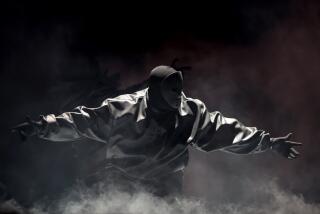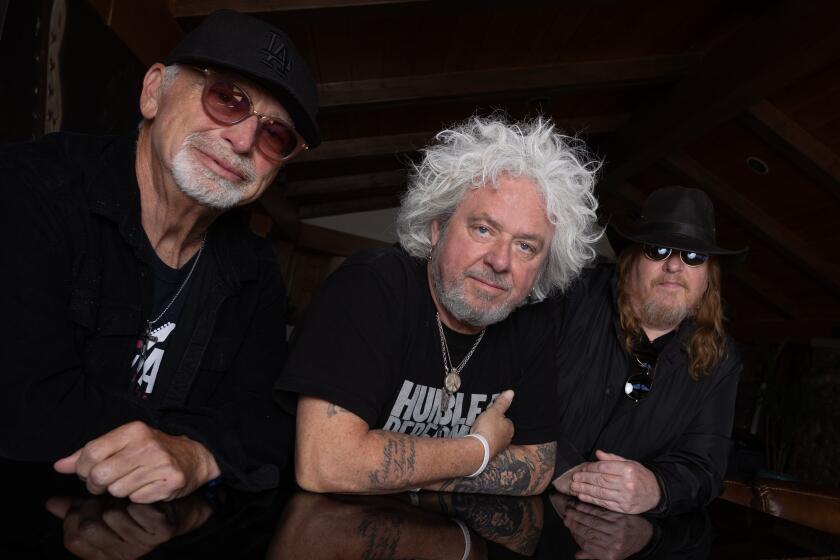Not the greatest, but compelling
The heated debate about whether or not Lil Wayne is the “greatest rapper alive” should be moot by now. For the record, he’s not, with Black Thought’s performance last Thursday at the Greek Theatre ensuring that the rapper also known as Weezy F. Baby wasn’t even the greatest MC to grace a Los Angeles stage in the last week. Yet such taxonomy seems trivial when the first heat wave of summer 2008 has Angelenos amping up their AC in synchronicity with the ascent of the self-proclaimed “fireman.”
Like it or not, this is Wayne’s time, with the nattering New Orleans native nicking seven songs onto this week’s Billboard Hot 100, including No. 1 smash “Lollipop,” while garnering near-unanimous critical acclaim with the platinum-in-its-first-week “Tha Carter III.” The album is on pace to be the biggest debut since 50 Cent’s 2005 release, “The Massacre.”
Fittingly, Wayne’s sold-out show Monday night at the House of Blues on the Sunset Strip curved closer to spectacle than concert. Fans flailed from the rafters screaming “We want Weezy” with bloodlust. Outside, a mob of scalpers swarmed anyone a stone’s throw from the building, frantically offering three-figure sums to see the current king of pop music.
Surprisingly, Wayne’s hourlong set mostly steered clear from his recent material, save for the prerequisite performances of lead singles “A Millie” and “Lollipop,” which drove the crowd into the sort of ecstatic frenzy/group singalong you’d expect to find at a Hannah Montana concert, or a Chris Brown show -- the latter of whom conveniently popped up to help Wayne perform “Gimme That Remix.”
Providing a brief window into the enigmatic psyche of one of the world’s weirdest working musicians, Wayne’s set reminded everyone of the veracity of his recent boast on “Phone Home”: “I am not like you, I am a Martian.” Wayne skittered across the stage, pants practically at his knees, collapsing to the ground to hump the air, rising to his feet to sip from a white cup.
Busting out his guitar in a bit that had the crowd murmuring to themselves, “Is he really going to do this?” Wayne plucked the strings with a child’s eagerness and skill level, suggesting more My First Fisher-Price Guitar Solo than virtuoso. Adding to the strangeness was a personal lip gloss supplier who stood behind Wayne mutely, vigilantly ensuring that his lips stayed moist at all times.
Like much of Wayne’s recorded output, his performance vacillated between brilliant and banal. The spooky surrealism of “I Feel Like Dying” and the weary warble of “Duffle Bag Boy” were tempered by the puerile misogyny, in its lyrics and its title, of another song.
Flashing an almost 2Pac-like charisma and energy, Wayne displayed an ingratiating enough stage presence to explain his massive success. Repeatedly thanking his fans for buying the album and ostensibly for shelling out the steep $67.50 for tickets, he ended the set in typically baffling fashion, draping himself in a white robe that said “Best rapper alive” and lip-syncing to the strains of Whitney Houston’s “I Will Always Love You.”
Ultimately, Lil Wayne might not have proved the veracity of the garment, but at least he deserved to be labeled one of the most compelling performers around.
More to Read
The biggest entertainment stories
Get our big stories about Hollywood, film, television, music, arts, culture and more right in your inbox as soon as they publish.
You may occasionally receive promotional content from the Los Angeles Times.










